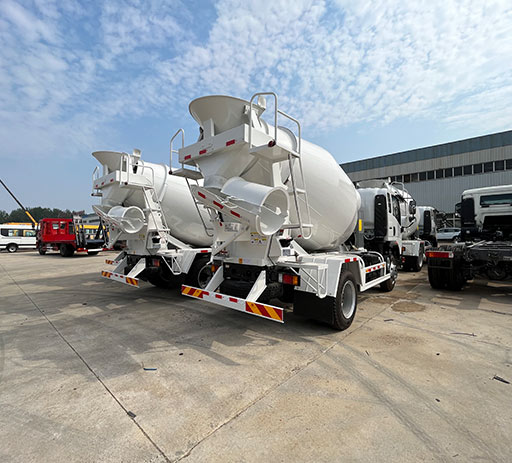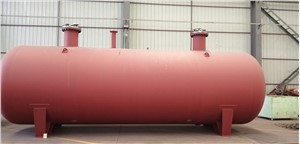Everything You Need to Know About Ref Trucks: The Ultimate Guide

Ref trucks, or refrigerated trucks, are essential vehicles in various industries where temperature-sensitive goods are transported. This comprehensive guide delves into the many aspects of ref trucks, including their types, functions, benefits, maintenance tips, and more. Whether you’re in the market for a ref truck or simply curious about their operation, you’ll find useful information here.
What is a Ref Truck?
A ref truck is a specialized vehicle designed to carry perishable goods. These trucks are equipped with refrigeration units to maintain low temperatures during transportation, preserving the quality and safety of products such as food, pharmaceuticals, and chemicals. Understanding the mechanisms and features of ref trucks is crucial for various industries relying on them.
Key Features of Ref Trucks
- Insulated Cargo Space: Ref trucks have insulated walls to enhance temperature control.
- Refrigeration Unit: The core component that maintains a specific temperature range.
- Temperature Monitoring: Many modern ref trucks are equipped with digital monitoring systems.
- Flexible Configurations: These trucks can be customized to fit different cargo needs, from small boxes to large pallets.
Types of Ref Trucks
1. Single Temperature Ref Trucks
Single temperature ref trucks maintain one consistent temperature throughout the cargo space. They are ideal for transporting products requiring the same temperature, such as frozen or chilled foods.
2. Multi-Temperature Ref Trucks

Multi-temperature ref trucks feature separate compartments with different temperature settings. These trucks are versatile and can transport a combination of products, such as frozen items and fresh produce.
3. Controlled Atmosphere Trucks
These trucks regulate not just temperature, but also humidity and gas composition inside the cargo area. They are perfect for sensitive products, like fresh fruits and vegetables, that require specific atmospheric conditions.
Applications of Ref Trucks
Ref trucks are widely used across various industries. Here are some practical applications and examples:
1. Food and Beverage Industry
Restaurants and food distributors rely on ref trucks to transport perishable items, ensuring they arrive fresh. For instance, a local bakery might use a ref truck to deliver freshly baked goods to stores while maintaining optimal temperature.
2. Pharmaceutical Industry
Pharmaceutical companies use ref trucks for vaccine and medicine transport. Proper temperature control is crucial to maintaining the efficacy of these products.
3. Floral Delivery
Florists often use ref trucks to deliver flowers. These vehicles help maintain humidity and temperature levels, ensuring that flowers remain vibrant and fresh during transport.
Benefits of Using Ref Trucks
Choosing to use ref trucks comes with numerous advantages:
1. Quality Assurance
By regulating temperature, ref trucks help maintain the quality and safety of perishable items, reducing spoilage and waste.
2. Compliance with Regulations
Many industries have strict guidelines regarding the transportation of perishable goods. Ref trucks help businesses comply with these regulations, avoiding penalties.
3. Market Expansion
With the ability to transport temperature-sensitive goods over longer distances, businesses can reach broader markets and increase sales opportunities.
Maintenance Tips for Ref Trucks
1. Regular Inspection
Inspect the refrigeration unit regularly to ensure it’s functioning correctly. This includes checking the compressor, evaporator, and condenser.

2. Temperature Calibration
Ensure the temperature settings are accurate. Use calibrated thermometers to verify the actual temperature inside the cargo space.
3. Cleaning the Cargo Area
Regularly clean the cargo area to prevent contamination, which can affect the quality of the products being transported.
4. Monitor Fuel Levels
Keep track of fuel levels to ensure the refrigeration unit has enough power to operate during transport.
5. Service Agreement
Consider a service agreement with a qualified technician for regular maintenance checks of the refrigeration system.
Buying or Renting a Ref Truck
When deciding whether to buy or rent a ref truck, consider the following factors:
1. Frequency of Use
If you require a ref truck only occasionally, renting might be more cost-effective. However, regular use may justify purchasing a truck.
2. Budget
Assess your financial situation; owning a ref truck comes with maintenance costs, insurance, and depreciation, while renting typically involves lower upfront costs.
3. Long-term vs. Short-term Needs
Determine your long-term transportation needs. If you anticipate growth, purchasing a truck might be a better investment.
Cost Considerations
The cost of ref trucks can vary widely based on several factors:
1. Truck Size and Type
Smaller single-temperature trucks are generally less expensive than larger multi-temperature vehicles. Customization will also affect the overall price.
2. New vs. Used

New ref trucks come with warranties and the latest technologies, while used trucks can offer significant savings.
3. Additional Features
Advanced features such as GPS tracking, temperature monitoring systems, or enhanced insulation can increase costs but may provide better ROI.
| Type of Ref Truck | Estimated Cost (USD) | Key Features |
|---|---|---|
| Single Temperature Truck | $20,000 – $50,000 | Insulated, basic refrigeration |
| Multi-Temperature Truck | $30,000 – $70,000 | Multiple compartments, advanced refrigeration |
| Controlled Atmosphere Truck | $50,000 – $100,000+ | Humidity control, gas composition regulation |
Choosing the Right Ref Truck for Your Needs
Selecting the right ref truck involves understanding your specific requirements:
1. Identify Your Cargo
Consider what type of goods you will be transporting. This will help determine whether you need a single or multi-temperature truck.
2. Evaluate Your Route
Analyze your delivery routes to assess the duration and conditions affecting temperature. For longer trips or diverse climates, a more advanced truck may be necessary.
3. Check Local Regulations
Research local regulations regarding the transport of perishable goods, as compliance can determine the type of ref truck needed.
Future Trends in Ref Trucks
The ref truck industry is evolving with new technologies and how businesses approach transport logistics:
1. Eco-Friendly Refrigeration
There is a growing push towards environmentally-friendly refrigerants that reduce greenhouse gas emissions.
2. Enhanced Tracking Technology
More ref trucks are being equipped with GPS and monitoring systems that allow real-time tracking of cargo conditions during transport.
3. Automation and Electrification
Future trends may include fully electric ref trucks, reducing reliance on fossil fuels and lowering overall operating costs.
FAQ Section
1. What is the average lifespan of a ref truck?
The average lifespan of a ref truck is typically around 10 to 15 years, depending on maintenance and usage.
2. How do I maintain the temperature in a ref truck?
Regularly monitor the refrigeration unit and calibrate temperature settings to ensure efficient operation. Most modern units come with monitoring systems for this purpose.
3. Can ref trucks be used for non-food items?
Yes, ref trucks can also transport pharmaceuticals and chemicals that require temperature control for safety and effectiveness.
4. How do I know if I need a refrigerated truck?
If you are transporting perishable goods that require temperature control for safety or quality, a refrigerated truck is essential.
5. Is it worth investing in a new ref truck?
Investing in a new ref truck can be worthwhile if you regularly transport perishable goods, as they often come with warranties and the latest technology.
6. Are there regulations for transporting food in ref trucks?
Yes, regulations vary by region but often include specific guidelines for maintaining temperature and sanitation during food transport.
